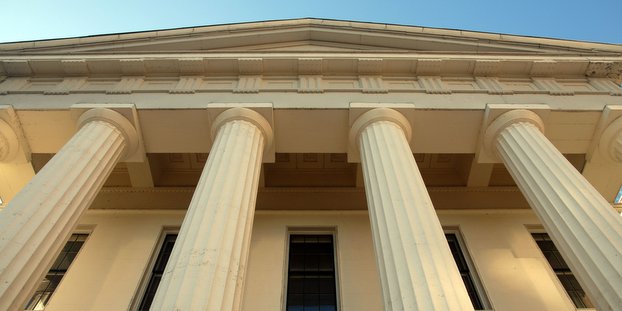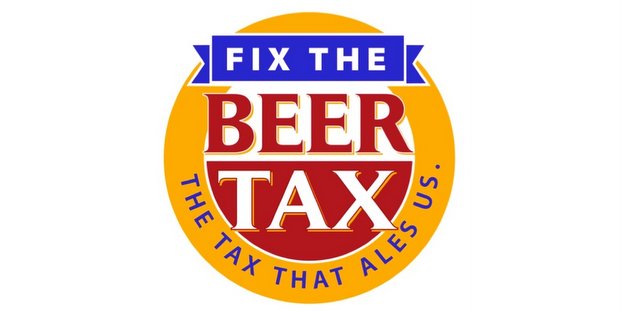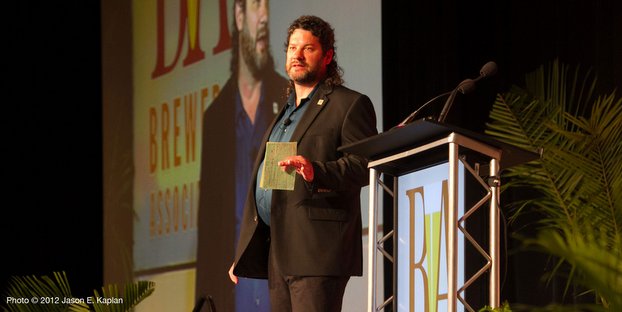“Nothing is certain but death and taxes,” as the old saying goes. But for small craft brewers trying to make it in a growing, competitive niche industry, new taxes could mean certain business death. Just ask Linus Hall, who opened Yazoo Brewing in 2003 to booming sales and national acclaim. Though his business continues to grow, Tennessee’s excessive tax policy is choking down the company’s business opportunities, including employment growth.

“I want to hire more people and invest more money in my business, but because of the tax, it makes it more difficult to do so,” Hall said. “We’re growing, but just not as fast as we could have to keep up with consumer demand. The margins are just too small because of the 17 percent tax.”
That’s why a new legislative proposal promises to bring logic to Tennessee law and stabilize an out-of-control situation that has pushed the state into the beer-tax stratosphere.
Tennessee has the nation’s highest effective beer tax rate, 12 percent higher than No. 2 Alaska, and it is rising higher every year, regardless of whether beer sales rise. This effect is the result, likely unintended, from beer-tax policy established by the State of Tennessee in 1954. Since that time, Tennessee has blown past every state to be the nation’s highest taxer of beer.
“Tennessee beer drinkers are already paying more than their fair share, but this is getting out of control,” said Scott Turner, president of Ajax Turner Co. Inc. “We are completely out of step with the nation’s 49 other states. In addition to higher taxes, this is having a detrimental effect on economic development and consumer choice.”
The Beer Tax Reform Act of 2013, supported by a coalition of Tennessee businesses and consumers, would change the way the state’s local wholesale beer tax is structured, though it would still preserve the current levels of funding that the state’s local governments receive from the tax.
The Beer Tax Reform Act of 2013 will be sponsored by State Representative Cameron Sexton (R-Crossville) and State Senator Brian Kelsey (R-Germantown).
Rep. Sexton, Sen. Kelsey, Tennessee craft beer makers, national brewers and importers, wholesalers and consumers will launch a statewide grassroots campaign in support of beer tax reform on Jan. 30, 5 p.m., at Yazoo Brewing Co., 910 Division Street in Nashville. Hundreds of supporters are expected to attend and begin a statewide tour of campaign events in Memphis, Clarksville, Nashville, Cookeville, Chattanooga, Knoxville and Tri-Cities.
The grassroots effort will be visible in hundreds of Tennessee restaurants and craft brewery establishments, inviting consumers through social media to voice their support and contact legislators. Information about the Beer Tax Reform Act of 2013 can be found on the Web at http://www.fixthebeertax.com, and at http://www.facebook.com/fixthebeertax.
“Our state’s wholesale beer tax needs reform. Right now, the tax is working against Tennessee,” Rep. Sexton said. “The world has changed – Tennessee has changed – a great deal since the wholesale tax was established in 1954. The policy should be modernized to reflect changes in the market, such as the growth of craft brewers, to encourage rather than discourage economic investment.
“Our goal is to reform the beer tax so that the revenues reflect the beer sales, while at the same we want to ensure that local governments continue to receive the current revenue levels from the tax.”
Added Kelsey: “Tennessee beer sales have gone down 5 percent in the past decade, but the revenues from the wholesale tax have gone up over 30 percent. It doesn’t make sense to tax any product like that. Punitive taxes are always unacceptable.”
Even if the Beer Tax Reform Act of 2013 is approved and calculated on volume rather than price, Tennessee would retain title as the nation’s highest beer tax state. It simply would not continue to grow with such out-of-step force compared to other states’ rates.
How Tennessee taxes beer
Tennessee’s beer tax is a combination of three taxes. Federal and state excise taxes are calculated by volume, and then a 17 percent local wholesale tax is calculated on price. (Later, at the cash register, consumers pay the additional sales tax.) So, for brewers and wholesalers, when costs such as fuel, labor and materials go up, the beer tax climbs ever higher.
The Tennessee Beer Tax Reform Act of 2013 addresses this situation by proposing that like 48 other states, Tennessee bases its beer tax on volume. (Kentucky also has an added wholesale tax, though the Bluegrass State’s rate is considerably lower than Tennessee’s and its effective rate is $23.96.) The Tennessee reform proposal is revenue neutral because it maintains the wholesale tax revenues at current levels, while slowing the explosive growth in revenues created by a price-based model that dates to 1954.
Out of step with the nation
How out of step is Tennessee with the other 49 states? In 2005, Tennessee was the fourth highest beer tax state in the country. Since then, Tennessee has vaulted past Georgia, Alabama and Alaska to become No. 1. And now Tennessee’s tax has grown to be 12 percent higher than second-place Alaska.
“A tax that goes up that fast and continues to climb in spite of lower sales is punitive and is simply not good tax policy,” said Ottis Phillips, president of SEC Enterprises Inc., a wholesaler in Cookeville. “The local wholesale tax might have made sense 60 years ago when it was established, but this is excessive, and surely Tennessee didn’t intend to become the highest beer taxer in the United States.”
The current arrangement hurts consumers and competitiveness in several ways. For example:
• Even though a craft brewery, such as Nashville’s Yazoo Brewery, is based in Tennessee, it is much more profitable for that brewery to truck and sell its products to customers in other states.
• Meantime, other breweries ship their products straight through Tennessee but don’t stop at warehouses here, venturing on instead to places such as Kentucky ($23.96 a barrel) or Virginia ($8.69). The $37 tax here makes their products too expensive for them to consider selling in the Volunteer State. Consumers pay with a comparative lack of choice on the shelves.
• The extreme tax policy is running off investment. Sierra Nevada considered locating its newest brewery here, but the nation’s highest beer tax helped shape its decision to locate in North Carolina instead, where the effective beer tax rate is $19.13.
• One Tennessee distributor, Kurt Strickmaker at BountyBev, actually makes half as much on many of his kegs than his local government does in taxes. His local government takes twice as big a bite as he does on many of his product offerings.
• Tennessee is in a tug-of-war with Virginia to keep Kingsport-based brewer Erich Allen (Studio Brew) in the state. Kingsport economic development officials want Allen and his popular beers to be a downtown economic development anchor, but Virginia is exploiting Tennessee’s top tax status as a reason for him to migrate across the border and build in Bristol, Va.
Tennessee’s brewers and wholesalers understand that local governments expect and depend on the proceeds from the local wholesale tax on beer. They are already paying more than their fair share. But the current situation is bizarre, creating an ever-rocketing tax rate that defies logic.
For the good of Tennessee’s competitive edge and for the good of consumers, the Beer Tax Reform Act of 2013 promises to bring common-sense logic to this portion of the state’s tax code.






RT @CraftBrewingBiz: Curing the beer tax that ales Tennessee: “Nothing is certain but death and taxes,” as th… http://t.co/iFGrZA7Y